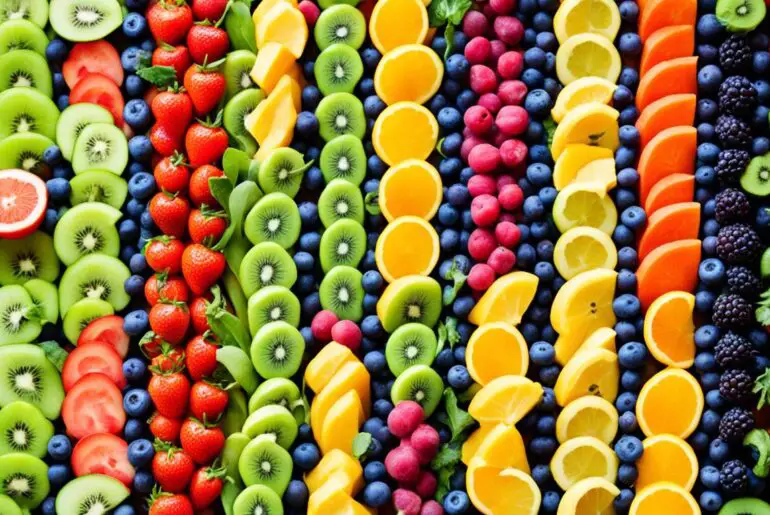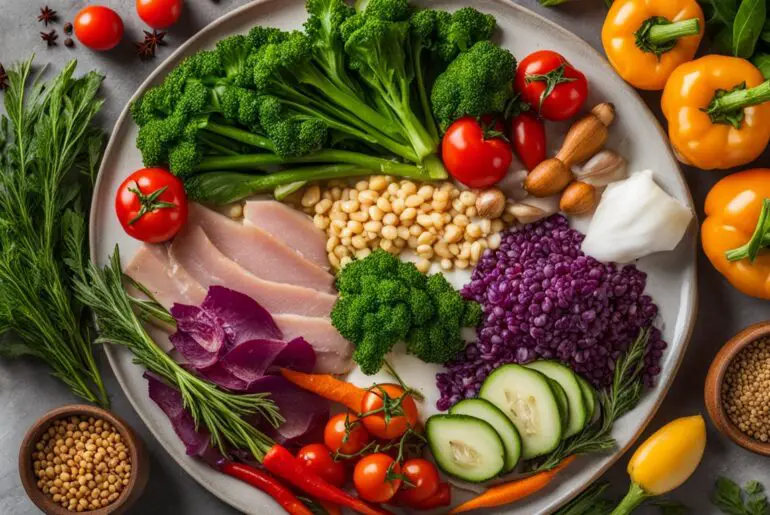Did you know that maintaining weight loss after completing the HCG diet can be a challenge for many individuals?
The HCG diet is a popular weight loss plan that combines calorie restriction with regular doses of HCG injections. While the diet has been successful in helping people shed pounds, the real struggle begins once the diet is over. Many individuals find themselves gaining back the weight they lost, and this can be frustrating and demoralizing.
So, why does this weight regain happen? During the low-calorie phase of the HCG diet, the body goes into a starvation mode and adjusts its metabolism to conserve energy. When calorie intake is increased after the diet, the body perceives it as a threat and stores the excess calories as fat, leading to weight gain.
But don’t worry, there are strategies you can implement to maintain your weight loss after completing the HCG diet. In this article, I will share some valuable tips and insights on how to manage your calorie intake, reintroduce normal foods, establish an exercise routine, and ultimately sustain your weight loss beyond the HCG diet.
Key Takeaways:
- Gradually increase your calorie intake after the HCG diet to prevent weight gain.
- Reintroduce normal foods into your diet slowly, starting with low-carb and low-fat options.
- Establish an exercise routine to help maintain your weight loss and prevent weight regain.
- Seek medical supervision throughout the HCG diet and maintenance phase for safety and effectiveness.
- Understanding the HCG diet and its impact on your body is crucial for managing your calorie intake and long-term weight maintenance.
The Problem with HCG Dieters
During the HCG diet, the hypothalamus gland is stimulated by HCG injections, resulting in the release of stored fat and subsequent weight loss. However, once this phase is completed and the injections are stopped, HCG dieters may encounter a common problem. The body, having adapted to the low-calorie intake, may perceive an increased calorie intake as a threat and respond by storing excess calories as fat. Consequently, weight gain after completing the HCG diet becomes a significant concern.
Understanding this physiological response is crucial for developing effective strategies to maintain weight loss and prevent the dreaded rebound effect. By delving deeper into the mechanisms at play, dieters can optimize their post-HCG diet calorie intake and avoid potential setbacks.
Maintaining Weight After HCG Diet
To maintain weight after the HCG diet, it is important to gradually increase calorie intake rather than making sudden changes. Starting with an increase of 200 kcal per day and gradually reaching the recommended daily calorie intake can help prevent weight gain.
During the HCG diet maintenance phase, it is crucial to reintroduce normal foods into your diet. This means gradually transitioning from the strict food protocol of the diet to a balanced and varied meal plan. Incorporating a variety of nutrient-rich foods such as lean proteins, whole grains, fruits, and vegetables will provide your body with the necessary nutrients it needs for optimal function.
Remember, the goal is to establish healthy eating habits that are sustainable in the long term. By gradually reintroducing normal foods, you can avoid drastic changes that may shock your system and lead to weight regain. Take it slow, listen to your body, and make adjustments as needed.
Along with adjusting your calorie intake and food choices, incorporating regular exercise into your routine is essential for maintaining weight after the HCG diet. Engaging in physical activity not only helps burn calories but also supports muscle maintenance and overall well-being.
Establishing an Exercise Routine
When starting your exercise routine, consider activities that you enjoy and that align with your fitness level. This will make it easier to stay consistent and motivated. Aim for at least 150 minutes of moderate-intensity aerobic activity or 75 minutes of vigorous-intensity aerobic activity each week. You can choose activities such as brisk walking, jogging, cycling, swimming, or dancing. Remember to include strength training exercises at least twice a week to promote muscle health and tone.
Integration of exercise into your daily routine can aid in calorie expenditure, improve cardiovascular health, and enhance overall well-being. It is recommended to consult with a healthcare professional before initiating any exercise regimen, especially if you have existing health conditions or concerns.
The Importance of Balance and Maintenance
Maintaining weight loss after the HCG diet is about finding a sustainable balance that works for you. It is essential to be mindful of your calorie intake and make conscious choices that prioritize nutrient-dense foods. Regularly monitoring your weight can help you stay on track and make adjustments when necessary.
Remember, weight maintenance is a lifelong journey, and it is normal to experience fluctuations. Stay committed to your health goals, be kind to yourself, and seek support from healthcare professionals or support groups when needed.
By adopting gradual changes to your calorie intake, reintroducing normal foods, and incorporating regular exercise, you can successfully maintain your weight loss after the HCG diet. Embrace this phase as an opportunity for long-term success and a healthier, happier you.
Sample Meal Plan for HCG Diet Maintenance Phase
| Meal | Food Options |
|---|---|
| Breakfast | Egg omelet with vegetables, whole wheat toast, and a side of berries |
| Snack | Greek yogurt topped with nuts and honey |
| Lunch | Grilled chicken salad with mixed greens, cherry tomatoes, cucumbers, and a light vinaigrette dressing |
| Snack | Vegetable sticks with hummus |
| Dinner | Grilled salmon with quinoa and roasted vegetables |
| Snack | Apple slices with almond butter |
Gradual Increase of Calorie Intake
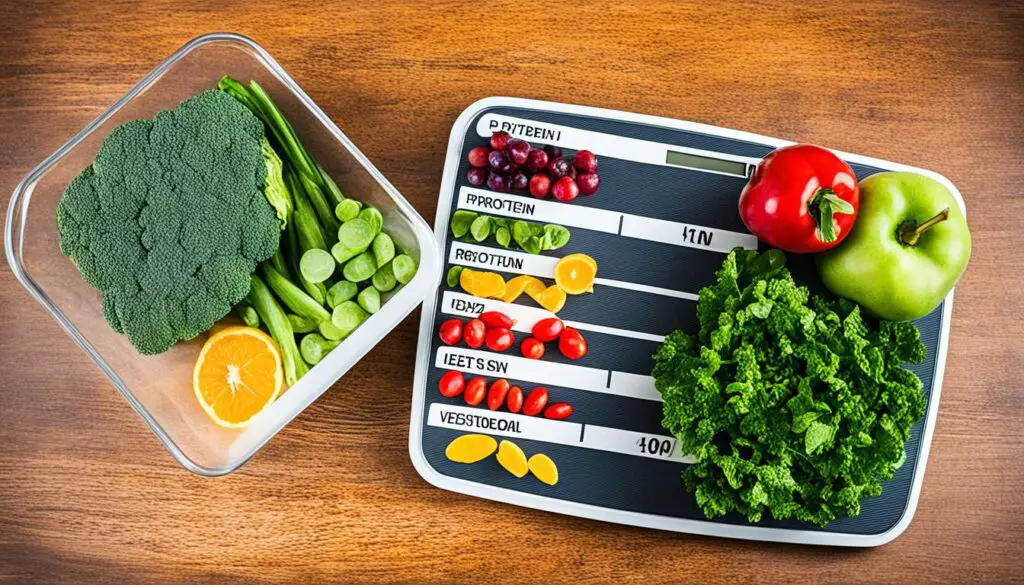
One of the key strategies for preventing weight gain after completing the HCG diet is to gradually increase your calorie intake. This approach allows your body to adjust to a higher calorie intake without storing excess calories as fat. By using a calculated formula based on your body weight, you can determine the optimum number of calories you can safely consume without risking weight gain.
To implement this strategy, it is recommended to increase your calorie intake by 200 kcal per week until you reach the calculated optimum amount.
Calculating Your Recommended Calorie Intake
To calculate your recommended calorie intake after completing the HCG diet, you can use the following formula:
Recommended Calorie Intake = Basal Metabolic Rate (BMR) + Calories Burned Through Physical Activity
Your BMR represents the number of calories your body needs to maintain basic bodily functions at rest. To determine your BMR, you can use one of the widely available BMR calculators online or consult with a healthcare professional.
In addition to your BMR, you should also consider the calories burned through physical activity. This includes activities such as exercise, household chores, and any other physical activities you engage in throughout the day. By tracking your physical activity and estimating the calories burned, you can add this value to your BMR to determine your recommended calorie intake.
Once you have calculated your recommended calorie intake, it is important to gradually increase your intake by 200 kcal per week until you reach this amount. This allows your body to adjust and maintain your weight loss without the risk of gaining back the weight you worked hard to lose.
Remember, the gradual increase of calorie intake is an essential step in maintaining your weight loss after completing the HCG diet. By following these guidelines and monitoring your progress, you can successfully transition to a balanced and sustainable diet while maintaining your desired weight.
Bring Back Your Normal Diet Routine
After completing the HCG diet, it is time to reintroduce normal foods into your diet. However, it is important to do this gradually to prevent weight regain. Start by incorporating low-carb and low-fat options into your meals and snacks. This will help you maintain the healthy calorie intake after HCG diet completion. Remember to keep everything in moderation and listen to your body’s hunger and fullness cues.
Monitoring your weight during this period is crucial for staying on track and making adjustments to your food choices if necessary. It is normal for your weight to fluctuate slightly as you transition to a regular eating routine, but be mindful of any significant changes. Consult with a healthcare professional if you have concerns or need guidance.
During this phase, it can be helpful to track your food intake and make note of how different foods make you feel. This will allow you to identify any potential triggers for unhealthy eating habits and make informed decisions moving forward. Remember, the goal is not just to maintain your weight loss, but to also foster a healthy relationship with food and nourish your body.
Formulate an Exercise Routine

Exercise is essential for maintaining weight loss after completing the HCG diet. While it is not recommended during the low-calorie phase, incorporating regular exercise into your routine can help prevent weight regain and support long-term weight maintenance. To maximize the benefits, aim for at least 75 minutes of vigorous exercise or 150 minutes of moderate exercise per week. Here are some exercise options to consider:
- Brisk walking: Walking at a brisk pace is a low-impact exercise that can be easily incorporated into daily life. It’s a great option for beginners and can be done indoors or outdoors.
- Biking: Cycling is a fun and effective way to burn calories and improve cardiovascular fitness. Whether you prefer indoor stationary bikes or outdoor cycling, it’s a versatile exercise that can be adjusted to your fitness level.
- Zumba: If you enjoy dancing, Zumba classes can be a fantastic way to get your heart rate up and burn calories. It combines high-energy dance moves with aerobic exercises, creating an engaging and dynamic workout.
Remember to consult with your healthcare provider before starting any exercise routine, especially if you have any underlying health conditions or concerns. They can provide personalized recommendations based on your individual needs and fitness goals.
The Importance of Medical Supervision
When it comes to embarking on the HCG diet maintenance phase, seeking medical supervision is of utmost importance. This not only ensures your safety but also enhances the effectiveness of the diet. Under the guidance of medical professionals, you can navigate each phase of the diet with confidence, receiving valuable recommendations for maintaining a healthy weight loss.
Authorized clinics that offer the HCG diet are the ideal choice for a supervised and successful experience. These clinics have the expertise and experience to provide comprehensive support throughout your journey. They can monitor your progress, offer personalized advice, and address any concerns or queries that may arise.
The HCG diet maintenance phase is a critical period, as it focuses on sustaining the weight loss achieved during the diet. Therefore, having medical supervision ensures that your journey is well-managed and optimized for long-term success. By partnering with medical professionals, you can receive the expert guidance needed to overcome any challenges and embrace a healthier lifestyle.
The Benefits of Medical Supervision
- Safe and effective: Medical supervision ensures that the HCG diet maintenance phase is conducted in a safe and effective manner. Professionals can closely monitor your progress, providing guidance to prevent potential complications and support your optimal health.
- Personalized advice: Every individual is unique, and personalized recommendations are essential for a successful weight maintenance journey. Medical professionals can tailor their advice to suit your specific needs, ensuring that you follow a plan that aligns with your goals and preferences.
Investing in medical supervision allows you to embark on the HCG diet maintenance phase with confidence and peace of mind. Your health and well-being are at the forefront, and you can rest assured that you are receiving the best possible care during this critical phase.
Seeking medical supervision for the HCG diet maintenance phase provides invaluable support and accountability. With the guidance of professionals, you can confidently navigate this phase, maintain your weight loss, and embrace a healthier lifestyle. Don’t underestimate the importance of having medical experts by your side.
Understanding the HCG Diet

The HCG diet is a weight loss program that combines calorie restriction with HCG hormone injections. This unique approach aims to stimulate weight loss by utilizing the effects of HCG on the body. By understanding how the injections and low-calorie phase work together, individuals can successfully navigate the maintenance phase and prevent weight regain.
During the HCG diet, the HCG hormone injections stimulate the hypothalamus, signaling the body to release stored fat for energy. This allows individuals to experience rapid weight loss while following the calorie-restricted phase. However, it’s important to note that the injections should only be taken under the guidance of medical professionals.
Once the low-calorie phase is completed, individuals transition into the maintenance phase, where calorie intake is gradually increased. It is crucial to follow the diet protocol during this phase to maintain the weight loss achieved and prevent the body from going into a state of starvation. This can help prevent weight regain and allow the body to stabilize at a healthy weight.
Seeking guidance from medical professionals, such as those offering the HCG diet near you, is essential in understanding the intricacies of the diet and ensuring its safe and effective implementation. They can provide personalized recommendations and support throughout the diet journey, including the maintenance phase.
The image above illustrates the significance of finding a nearby HCG diet provider to ensure proper supervision and guidance. This step is vital to maximize the benefits of the diet and ensure a smooth transition into the maintenance phase.
By understanding the science behind the HCG diet and working closely with medical professionals, individuals can optimize their weight loss results and effectively maintain their achievements in the long term.
Why the Maintenance Phase is Crucial
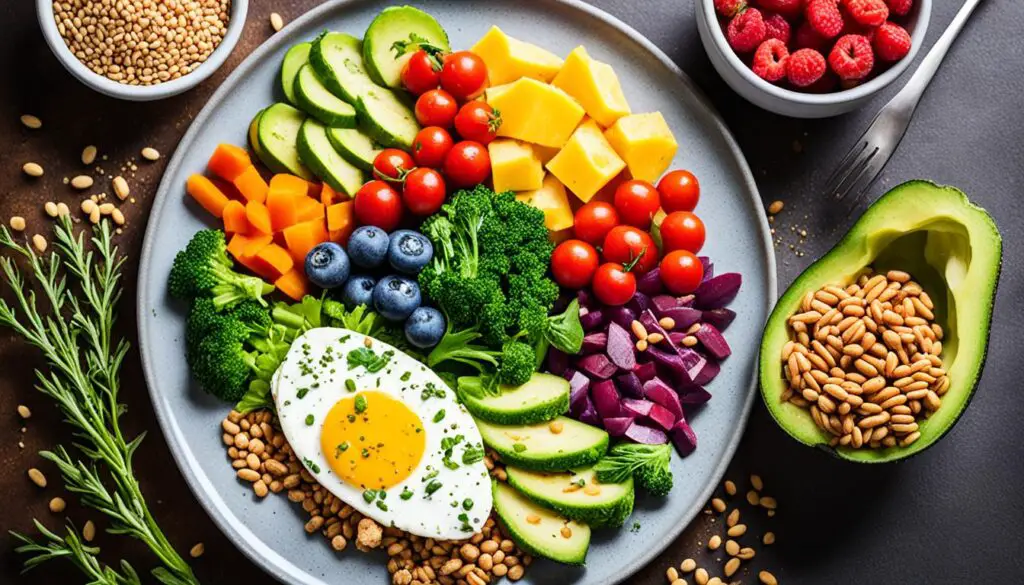
The maintenance phase of the HCG diet is a crucial step in ensuring long-term weight management and preventing rapid weight gain. It serves as a transitional period where the body adjusts to increased calorie intake after the low-calorie phase of the diet. It is during this phase that individuals establish healthy eating habits and solidify their progress towards maintaining their weight loss.
Skipping or neglecting the maintenance phase can be detrimental to the overall success of the HCG diet. It can result in the body being ill-prepared to handle an increase in calorie intake, potentially leading to weight regain. Therefore, understanding and adhering to the guidelines for calorie intake during this phase is essential for stabilizing weight and preserving the results achieved during the weight loss phase of the HCG diet.
“Skipping or neglecting the maintenance phase can undo the progress made during the weight loss phase.”
During the maintenance phase, it is important to gradually increase calorie intake while prioritizing nutrient-dense foods. This allows the body to readjust and establish a new baseline for energy expenditure. The specific calorie intake guidelines may vary depending on individual factors such as age, sex, activity level, and weight. Consulting with a healthcare professional or a nutritionist can provide personalized recommendations tailored to each individual’s needs.
Calorie Intake Guidelines after Completing HCG Diet:
- Start by gradually increasing calorie intake by approximately 200 calories per day.
- Monitor weight fluctuations during this phase and make adjustments to calorie intake if necessary.
- Focus on incorporating a variety of whole foods, including lean proteins, fruits, vegetables, whole grains, and healthy fats.
- Avoid highly processed foods, sugary drinks, and excessive sodium intake.
- Stay hydrated and prioritize drinking plenty of water throughout the day.
By following these calorie intake guidelines and making mindful food choices, individuals can ensure a smooth transition from the HCG diet to the maintenance phase without compromising their weight loss achievements. Establishing sustainable habits during this phase sets the foundation for long-term success in weight management and overall well-being.
Tips for Successful Weight Maintenance
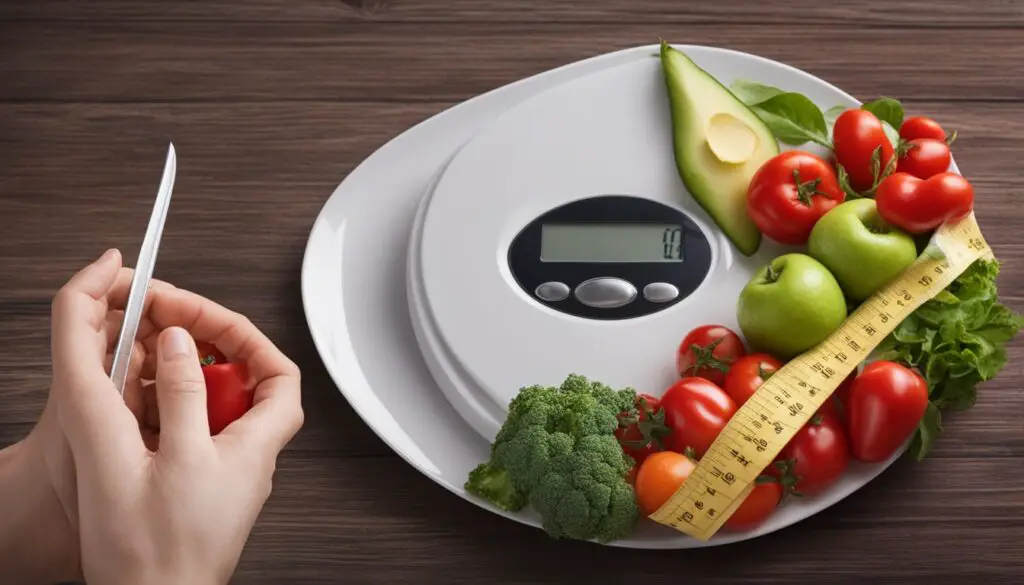
After completing the HCG diet, successful weight maintenance is crucial for long-term health and sustained results. Here are some valuable tips to help you navigate this phase and transition to a healthy lifestyle:
- Gradually increase calorie intake: While the low-calorie phase of the HCG diet may have restricted your calorie intake, it’s important to gradually increase it after completing the diet. This allows your body to adjust and prevents sudden weight gain. Increase your calorie intake by 200 kcal per week until you reach the recommended daily amount.
- Reintroduce normal foods: Slowly reintroduce normal foods into your diet, starting with low-carb and low-fat options. Focus on whole, nutritious foods and avoid processed or sugary items. Listen to your body’s response to different foods and make adjustments accordingly.
- Establish an exercise routine: Regular physical activity plays a pivotal role in weight maintenance. Aim for at least 150 minutes of moderate exercise or 75 minutes of vigorous exercise per week. Choose activities you enjoy, such as brisk walking, biking, or dancing, and make them a part of your daily routine.
- Understand personal motivations for eating: Take the time to reflect on your personal motivations for eating. Are you eating out of hunger or for emotional reasons? Developing a better understanding of your relationship with food can help you make healthier choices and prevent overeating.
Implementing these tips into your daily life will greatly enhance your chances of maintaining your weight loss and transitioning to a sustainable, healthy lifestyle. Remember, every individual is unique, so listen to your body and make adjustments as needed.
Quote:
“Successful weight maintenance after the HCG diet requires a holistic approach that includes gradual calorie intake increase, reintroducing normal foods, regular exercise, and a deeper understanding of personal motivations for eating.” – Dr. Sarah Smith, Nutritionist
| Tip | Description |
|---|---|
| Gradually increase calorie intake | Gradually increase your calorie intake by 200 kcal per week until reaching the recommended daily amount. |
| Reintroduce normal foods | Slowly reintroduce whole, nutritious foods into your diet, starting with low-carb and low-fat options. |
| Establish an exercise routine | Incorporate at least 150 minutes of moderate exercise or 75 minutes of vigorous exercise into your weekly routine. |
| Understand personal motivations for eating | Reflect on your personal motivations for eating and develop a deeper understanding of your relationship with food. |
Conclusion
Maintaining weight loss after completing the HCG diet is essential for long-term success. To achieve this, individuals should focus on a few key strategies. First and foremost, a gradual increase in calorie intake is crucial. This allows the body to adjust to a higher caloric intake without triggering weight gain. Reintroducing normal foods into the diet in a controlled manner is also important. By starting with low-carb and low-fat options, individuals can prevent weight regain and establish healthy eating habits.
Regular exercise plays a vital role in weight maintenance after the HCG diet. Engaging in a combination of vigorous and moderate exercise for a recommended duration can help prevent weight regain. Activities like brisk walking, biking, or Zumba are excellent options for staying active and burning calories.
In addition to these physical strategies, understanding personal triggers for unhealthy eating is crucial. By identifying and addressing these triggers, individuals can effectively manage their calorie intake and make healthier choices. This self-awareness is key to sustaining weight loss and leading a healthy, balanced lifestyle after completing the HCG diet.
FAQ
What is the HCG diet?
The HCG diet is a weight loss plan that combines calorie restriction with regular doses of HCG injections.
Why do people struggle with maintaining their weight after completing the HCG diet?
The body may go into a starvation mode during the low-calorie phase of the HCG diet, leading to weight gain when calorie intake is increased.
How can I maintain weight after completing the HCG diet?
Gradually increasing calorie intake, reintroducing normal foods, and establishing an exercise routine are key factors in maintaining weight loss after the HCG diet.
How do I gradually increase calorie intake after completing the HCG diet?
Start with an increase of 200 kcal per day and gradually reach the recommended daily calorie intake to prevent weight gain.
How should I reintroduce normal foods after completing the HCG diet?
Start with low-carb and low-fat options and keep everything in moderation to prevent weight regain.
Is exercise important after completing the HCG diet?
Yes, exercise is essential for maintaining weight loss. Engaging in at least 75 minutes of vigorous exercise or 150 minutes of moderate exercise per week can help prevent weight regain.
Should I seek medical supervision when doing the HCG diet?
Yes, it is important to seek medical supervision to ensure safety and effectiveness. Medical professionals can guide you through each phase of the diet and provide recommendations for maintaining weight loss.
How does the HCG diet work?
HCG injections stimulate the hypothalamus gland to release stored fat, leading to weight loss during the HCG diet.
Why is the maintenance phase of the HCG diet crucial?
The maintenance phase is important for stabilizing weight and preventing rapid weight gain. Skipping or neglecting this phase can undo the progress made during the weight loss phase.
What are some tips for successful weight maintenance after the HCG diet?
Gradually increase calorie intake, reintroduce normal foods, establish an exercise routine, and understand personal triggers for unhealthy eating.



